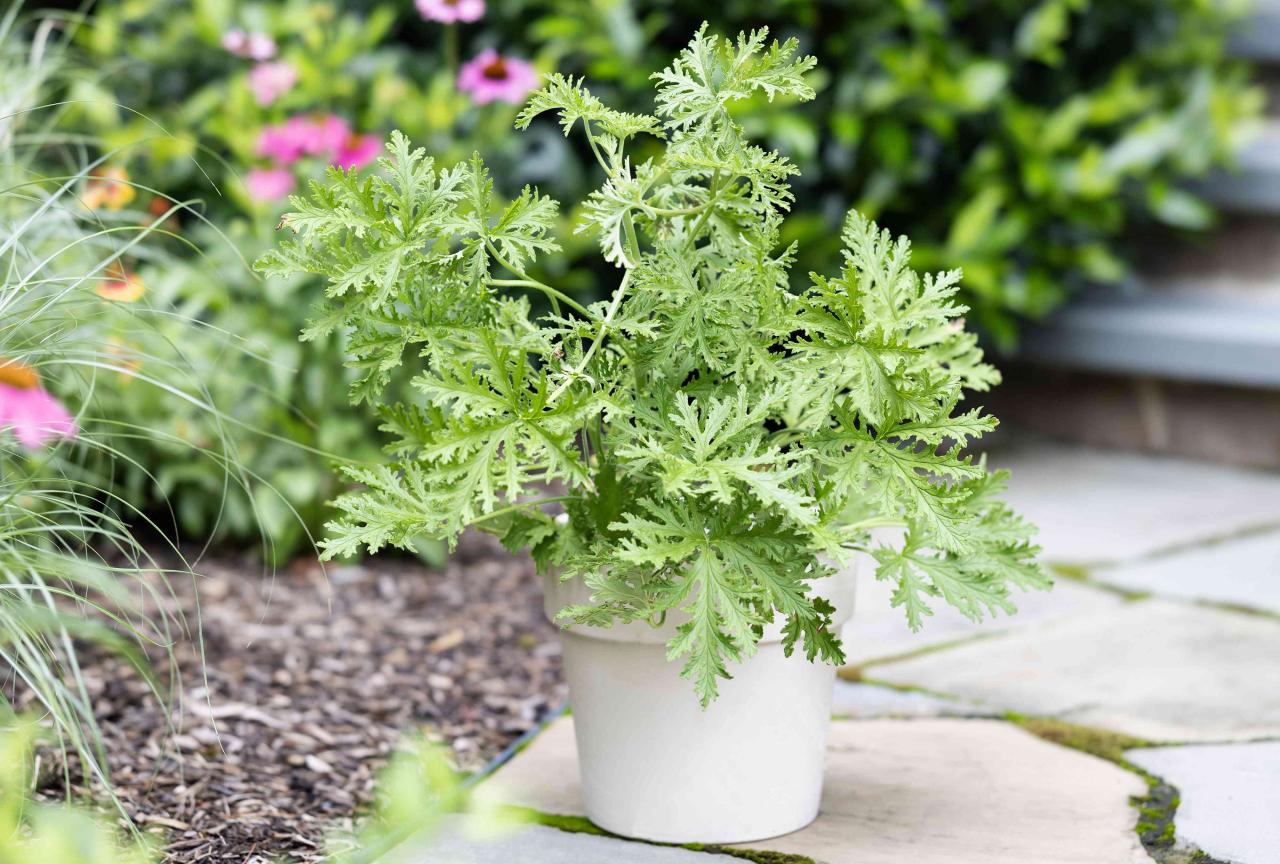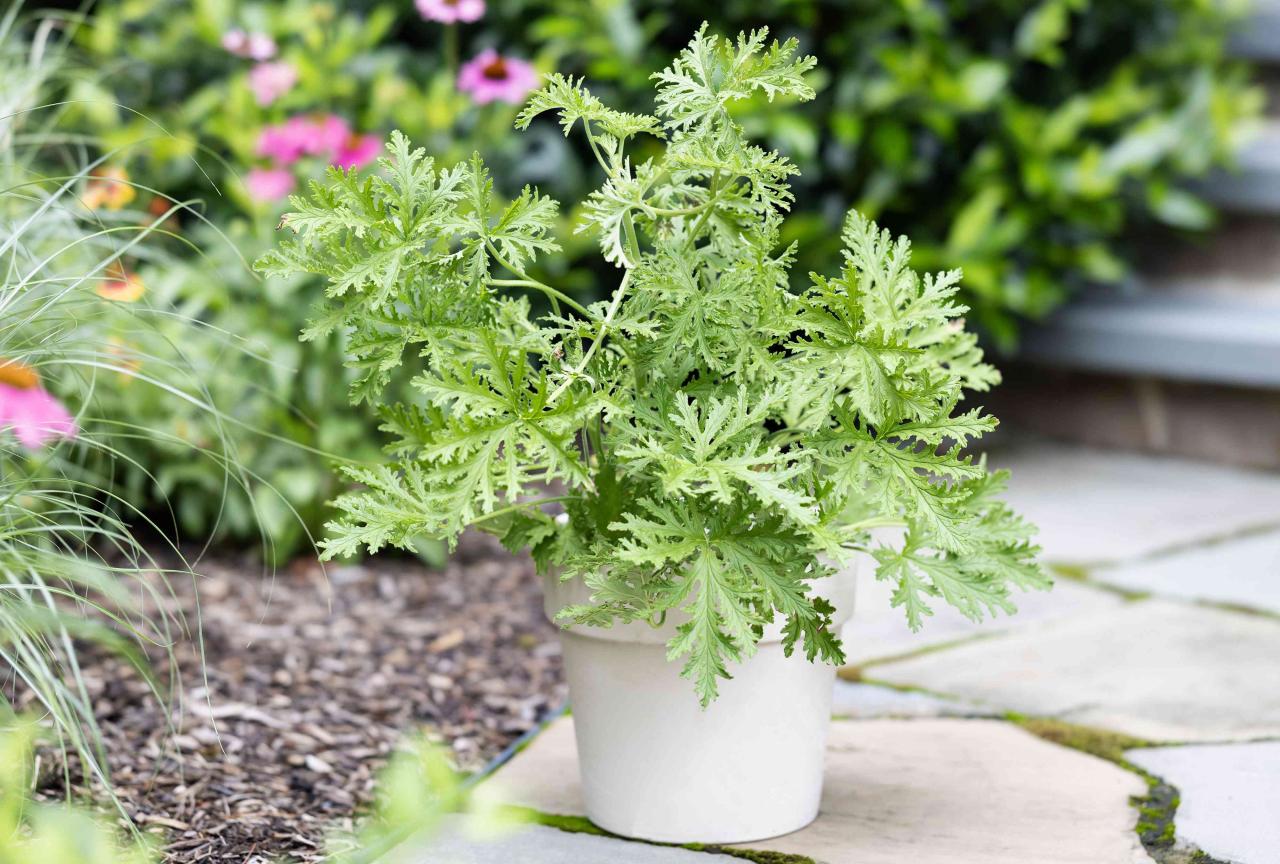Citronella Plant Benefits: How to Maximize the Effectiveness of This Herb, the citronella plant has been used for centuries as a natural insect repellent. Its distinctive lemony scent, derived from its essential oils, effectively deters pesky insects, making it a popular choice for gardeners, campers, and anyone seeking a natural alternative to chemical repellents.
This article delves into the origins, cultivation, and utilization of citronella plants, providing a comprehensive guide to maximizing their effectiveness as an insect deterrent.
From understanding its unique characteristics to mastering the art of cultivating and utilizing citronella plants, this guide equips readers with the knowledge to harness the power of this versatile herb. We explore the benefits of citronella for insect control, comparing the efficacy of citronella oil versus plants, and providing practical tips for creating DIY citronella candles, torches, and sprays.
We also address safety considerations and offer alternative natural repellents for those with sensitivities to citronella.
Introduction to Citronella Plant
The citronella plant, scientifically known as
- Cymbopogon nardus* and
- Cymbopogon winterianus*, is a tropical grass renowned for its distinctive lemony scent and its effectiveness as an insect repellent. Originating in Southeast Asia, this aromatic herb has a long history of use in traditional medicine, perfumery, and pest control.
The Origins and History of the Citronella Plant
Citronella’s journey began in the lush landscapes of Southeast Asia, particularly in Sri Lanka and Indonesia. These regions are considered the plant’s native habitats, where it thrives in warm, humid environments. For centuries, citronella has played a significant role in the cultural practices of these regions.
Indigenous communities have long utilized its essential oil for medicinal purposes, including treating skin infections, headaches, and fevers. Furthermore, its strong, pungent aroma has been harnessed to repel mosquitoes and other insects, contributing to a more comfortable outdoor experience.
Description of the Citronella Plant
The citronella plant is a tall, slender grass that can reach heights of up to 6 feet. Its narrow, pointed leaves are a vibrant green color and emit a distinct citrusy fragrance when crushed. The plant’s growth habit is characterized by its clumping nature, forming dense clusters that can spread rapidly in suitable conditions.
Common Varieties of Citronella
There are two primary varieties of citronella:
- Ceylon citronella (Cymbopogon nardus) : This variety is native to Sri Lanka and is known for its high concentration of citronellal, a key component responsible for its insect-repelling properties.
- Java citronella (Cymbopogon winterianus) : This variety is native to Indonesia and has a slightly different chemical composition, with a higher content of geraniol. Despite the variation, both varieties possess strong insect-repelling properties.
Unique Characteristics of Citronella as an Insect Repellent
The effectiveness of citronella as an insect repellent stems from its distinctive aroma, which is produced by the presence of volatile oils. These oils, particularly citronellal and geraniol, have been shown to disrupt the olfactory senses of insects, deterring them from approaching.
“Citronella’s effectiveness as an insect repellent is attributed to the presence of volatile oils, particularly citronellal and geraniol, which disrupt the olfactory senses of insects.”
Benefits of Citronella Plant
Citronella plants are renowned for their insect-repelling properties, making them a natural and effective solution for controlling pesky insects in gardens and outdoor spaces. The plant’s distinct lemony scent, derived from its essential oil, acts as a deterrent to various insects, including mosquitoes, flies, and ticks.
Effectiveness of Citronella Against Insects
The effectiveness of citronella as an insect repellent stems from its active compounds, primarily citronellal and geraniol, which disrupt the olfactory senses of insects. These compounds interfere with the insects’ ability to locate hosts, making it difficult for them to find and bite humans or animals.
- Mosquitoes:Citronella is particularly effective against mosquitoes, a common nuisance that can transmit diseases. Studies have shown that citronella candles and oil diffusers can significantly reduce mosquito bites.
- Flies:Citronella can also deter flies, which are known to spread bacteria and contaminate food. The plant’s scent is effective in repelling both houseflies and stable flies.
- Ticks:Citronella has shown some effectiveness in repelling ticks, which are responsible for transmitting Lyme disease and other illnesses. However, it’s important to note that citronella may not be as effective against ticks as other repellents, such as DEET.
Citronella Oil vs. Citronella Plants
Both citronella oil and citronella plants offer insect repellent benefits, but they differ in their application and effectiveness.
- Citronella Oil:Citronella oil is a concentrated form of the plant’s essential oil, providing a more potent and longer-lasting effect. It can be used in diffusers, candles, or topical applications.
- Citronella Plants:Citronella plants provide a more natural and environmentally friendly approach to insect control. They release the citronella scent naturally, creating a repellent zone around the plant. However, their effectiveness may be limited to a smaller area compared to citronella oil.
Note:The effectiveness of citronella as an insect repellent can vary depending on factors such as the concentration of citronella, the type of insect, and environmental conditions.
Cultivating Citronella Plants
Cultivating citronella plants can be a rewarding experience, offering a natural way to repel mosquitoes and enhance the ambiance of your garden. Citronella plants are relatively easy to grow, but understanding their optimal growing conditions and proper care practices can significantly increase their growth and effectiveness.
Citronella plants are known for their mosquito-repelling properties, but did you know that you can maximize their effectiveness by strategically placing them around your home and garden? If you’re looking for a way to naturally control pests, propagating your own citronella plants is a great option, and it’s a process that’s surprisingly simple.
Learn the Simple Methods for Propagating Ivy Today! Once you have your citronella plants established, remember to regularly prune them to encourage bushier growth and a stronger scent, further enhancing their pest-repelling abilities.
This section will provide a comprehensive guide to cultivating citronella plants, encompassing propagation techniques, optimal growing conditions, and effective pest and disease management strategies.
Propagation Methods
Citronella plants can be propagated using seeds or cuttings, each method offering distinct advantages.
- Seed Propagation:This method involves planting citronella seeds directly into the soil. It is a cost-effective option but requires patience as seed germination can take several weeks. When planting seeds, ensure they are placed in a well-draining potting mix and kept moist.
- Cuttings Propagation:This method involves taking stem cuttings from mature citronella plants and rooting them in a suitable medium. It is a faster and more reliable method than seed propagation, with cuttings typically rooting within a few weeks. When taking cuttings, select healthy stems and remove the leaves from the bottom two inches.
Dip the cut ends in rooting hormone and plant them in a moist rooting medium.
Optimal Growing Conditions
Citronella plants thrive in warm, sunny environments, and providing them with the right conditions is crucial for their growth and health.
- Sunlight:Citronella plants require at least six hours of direct sunlight per day. They can tolerate some shade, but their growth and essential oil production will be reduced.
- Soil:Citronella plants prefer well-draining soil with a slightly acidic pH (6.0-6.5). They can tolerate a range of soil types, but heavy clay soils can lead to root rot.
- Watering:Citronella plants require regular watering, especially during dry periods. Allow the soil to dry slightly between waterings to prevent root rot.
Pest and Disease Management
Citronella plants are generally resistant to pests and diseases, but they can be susceptible to certain issues.
- Common Pests:Aphids, mealybugs, and spider mites are common pests that can affect citronella plants. These pests can be controlled using insecticidal soap or neem oil.
- Common Diseases:Root rot is a common disease that can affect citronella plants in poorly draining soil. It is essential to ensure good drainage and avoid overwatering to prevent root rot.
Fertilization
Citronella plants benefit from regular fertilization, especially during the growing season. Use a balanced fertilizer formulated for flowering plants, applying it every four to six weeks.
Harvesting
Citronella oil is extracted from the leaves and stems of the plant. To harvest, cut the leaves and stems just above the soil level. The leaves and stems can be dried and used to make tea or essential oil.
Utilizing Citronella Plants for Insect Repellent
Citronella plants, with their distinctive lemony scent, have long been recognized for their natural insect-repelling properties. This herb’s essential oils, particularly citronellal and geraniol, effectively deter mosquitoes, flies, and other pesky insects. Utilizing citronella plants for insect control offers a safe and eco-friendly alternative to chemical-based repellents.
Methods for Utilizing Citronella Plants as Insect Repellents
Several methods effectively harness the insect-repelling power of citronella plants. These methods range from simply planting citronella in strategic locations to crafting DIY insect-repelling solutions.
- Planting Citronella Plants:Planting citronella plants around your home, patio, or garden creates a natural barrier against insects. The scent emitted by the plants acts as a repellent, discouraging insects from approaching.
- Citronella Candles:Citronella candles are a popular and effective way to repel insects, especially mosquitoes.
The burning candle releases citronella oil into the air, creating a protective scent shield.
- Citronella Torches:Citronella torches, similar to candles, are designed to burn for extended periods, providing long-lasting insect control. The combination of heat and citronella oil creates a strong, effective repellent.
- Citronella Sprays:DIY citronella sprays can be easily made using essential oils, water, and a spray bottle. These sprays can be applied to skin, clothing, and around areas where insects tend to congregate.
- Citronella Oil Diffusers:Diffusing citronella oil using an essential oil diffuser effectively disperses the scent throughout a room or area, creating an insect-repelling atmosphere.
Effectiveness and Advantages and Disadvantages of Different Methods
The effectiveness of each method varies depending on factors such as the concentration of citronella oil, environmental conditions, and the type of insect being repelled.
Method |
Effectiveness |
Advantages |
Disadvantages |
|---|---|---|---|
Planting Citronella Plants |
Moderate |
Natural, long-lasting, visually appealing |
May not be effective against all insects, requires regular maintenance |
Citronella Candles |
High |
Easy to use, portable, pleasant scent |
Short-burning time, fire hazard, limited coverage |
Citronella Torches |
High |
Long-burning time, effective for large areas, creates ambiance |
Fire hazard, may require supervision |
Citronella Sprays |
Moderate |
Versatile, easy to apply, can be customized |
May need frequent reapplication, can be irritating to sensitive skin |
Citronella Oil Diffusers |
Moderate |
Safe for indoor use, pleasant scent, can be used for aromatherapy |
Limited coverage, may not be effective against all insects |
Creating DIY Citronella Candles, Torches, and Sprays
DIY Citronella Candles
To create DIY citronella candles, you will need:* Soy wax flakes:1 pound
Citronella essential oil
1-2 ounces
Candle wicks
Choose the appropriate size for your candle container.
Candle containers
Glass jars, tins, or other heat-resistant containers.
Double boiler or heat-safe pot and bowl
To melt the wax.
Thermometer
To monitor the wax temperature.
Citronella plants are renowned for their insect-repelling properties, making them a natural and effective way to keep pesky bugs at bay. To maximize their effectiveness, ensure you plant them in a sunny location and maintain a consistent watering schedule.
Similar to citronella, roses are also known for their beauty and fragrance, and you can easily propagate them from cuttings. For detailed instructions on how to propagate roses from cuttings, check out this helpful guide: How To Propagate Roses From Cuttings: Tips for Thriving, Gorgeous Plants.
Once your rose cuttings have established roots, they’ll thrive in a sunny spot, adding a touch of elegance to your garden while attracting pollinators. Just like roses, citronella plants can also be grown from cuttings, providing a simple and effective way to expand your insect-repelling arsenal.
Wooden skewers
To center the wicks. Instructions:
- Prepare your candle containers by cleaning them thoroughly and attaching the wicks to the bottom using a wick sticker or a small amount of hot glue.
- In the double boiler or heat-safe pot and bowl, melt the soy wax flakes over low heat, stirring occasionally.
- Once the wax is completely melted, remove it from the heat and let it cool slightly.
- Add the citronella essential oil to the melted wax and stir well to combine.
- Carefully pour the wax mixture into the prepared containers, ensuring the wicks are centered.
- Allow the candles to cool and harden completely before burning.
DIY Citronella Torches
To create DIY citronella torches, you will need:* Bamboo skewers:Choose skewers that are long enough to reach the desired height for your torches.
Citronella oil
1-2 ounces
Cotton cloths
Cut into strips about 1 inch wide and 6 inches long.
Wire
To secure the cotton cloths to the skewers.
Metal container
To hold the torches. Instructions:Wrap a cotton cloth strip around the end of each bamboo skewer, securing it with wire.
-
2. Dip the cotton cloth-wrapped end of the skewers into a mixture of citronella oil and water (use a 1
1 ratio).
- Allow the skewers to dry completely before using.
- Place the torches in a metal container, ensuring they are spaced apart to prevent fires.
- Light the cotton cloth-wrapped end of the skewers to create a torch.
DIY Citronella Sprays
To create DIY citronella sprays, you will need:* Citronella essential oil:10-20 drops
Water
1 cup
Spray bottle
Choose a glass or plastic spray bottle. Instructions:
- Fill the spray bottle with water.
- Add the citronella essential oil to the water and shake well to combine.
- Apply the spray to skin, clothing, and around areas where insects tend to congregate.
Safety and Precautions

While citronella plants offer numerous benefits, it’s essential to acknowledge potential risks and take necessary precautions to ensure safe use. Citronella, like many natural substances, can trigger allergic reactions or skin irritations in sensitive individuals.
Safe Handling and Storage
- Wash hands thoroughlyafter handling citronella plants or their extracts. This minimizes the risk of accidental ingestion or contact with sensitive areas.
- Avoid direct contact with eyes and mouth. If contact occurs, rinse immediately with plenty of water. Seek medical attention if irritation persists.
- Store citronella extracts in tightly sealed containersin a cool, dark place, away from direct sunlight and heat. This helps maintain their potency and prevents potential spoilage.
Alternative Insect Repellents, Citronella Plant Benefits: How to Maximize the Effectiveness of This Herb
For individuals with sensitivities to citronella, exploring alternative natural insect repellents is recommended. Some effective options include:
- Lavender:Known for its calming scent and insect-repelling properties. Lavender essential oil can be diluted in a carrier oil and applied topically or used in diffusers.
- Lemongrass:Possesses a citrusy aroma that deters mosquitoes and other insects. Lemongrass essential oil can be used similarly to lavender oil.
- Peppermint:Its strong, minty scent effectively repels mosquitoes and other insects. Peppermint essential oil can be diluted and applied topically or used in diffusers.
- Catnip:Contains a compound called nepetalactone, which repels mosquitoes and other insects. Dried catnip can be placed in sachets or used in DIY insect repellents.
Last Recap

By embracing the natural power of citronella, you can create a more comfortable and enjoyable outdoor experience. Whether you’re tending your garden, enjoying a campfire, or simply relaxing on your patio, citronella plants offer a safe and effective way to deter insects.
Remember to cultivate your plants with care, experiment with different utilization methods, and always prioritize safety by following the recommended guidelines. With a little knowledge and effort, you can harness the benefits of citronella and enjoy a more peaceful and insect-free environment.
Clarifying Questions: Citronella Plant Benefits: How To Maximize The Effectiveness Of This Herb
Is citronella effective against all types of insects?
While citronella is effective against many insects, it may not be equally effective against all species. Some insects, like certain types of moths, may be less susceptible to its repellent properties.
How long does the repellent effect of citronella plants last?
The effectiveness of citronella plants as insect repellents depends on factors such as the size and health of the plant, the type of insect, and weather conditions. Generally, the scent of citronella plants can deter insects for several hours.
Are citronella plants safe for pets?
Citronella plants are generally considered safe for pets, but it’s always best to err on the side of caution. Keep plants out of reach of pets, especially those that are prone to chewing on plants. If you have any concerns, consult with your veterinarian.
